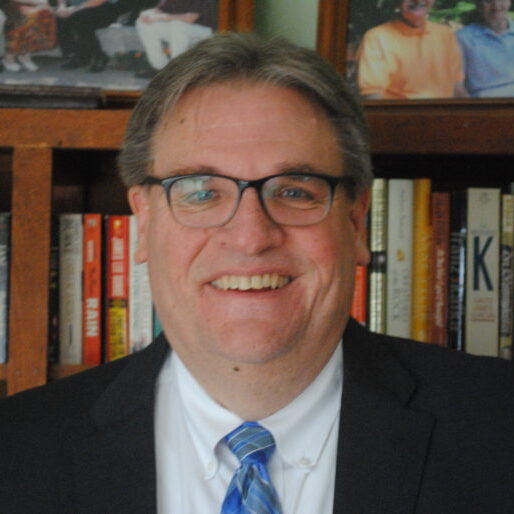Home » Doug Bratt » Authors » Page 48

Rev. Douglas Bratt is a Minister of the Word in the Christian Reformed Church in North America. After serving Christian Reformed churches in Iowa, Michigan and Maryland, he retired in July, 2024. He enjoys spending time with his grandchildren, reading good literature, and watching televised sports in his free time.
Doug began writing sermon commentaries for the CEP website in 2006 and started writing weekly in 2012.
Psalm 132:1-18
Commentary
Proper 29B
Comments, Observations, and Questions to Consider This psalm may seem about as relevant to 21st century worshipers as a repair manual for a Model T or instructions for preserving papyrus. It, after all, focuses on David, who has been dead for a long time, and Zion, which no longer has the kind of meaning it…
1 Samuel 2:1-10
Commentary
Proper 28B
Comments, Observations, and Questions to Consider (NOTE: The Revised Common Lectionary occasionally substitutes an OT reading for a Psalm, as is this case on this particular Sunday in Year B) While I Samuel 2:1-10 is not part of the book of Psalms, it’s like a psalm in that it’s a song of praise and thanksgiving…
Psalm 127
Commentary
Proper 27B
Comments, Observations, and Questions to Consider Few psalms are arguably more challenging to preach and teach than this somewhat quirky one. After all, it contains neither the vows nor calls to praise that characterize so many other psalms. Psalm 127, in fact, more closely resembles the kind of wisdom literature we find more commonly in…
Psalm 146
Commentary
Proper 26B
Comments, Observations, and Questions to Consider This psalm marks the beginning of the end of God’s peoples’ songbook. It’s one of five doxologies that offer resounding praise to the Lord. It’s appropriate the psalmist should end this way. After all, she sees praise as a lifelong vocation and privilege. After all, Psalm 146’s poet twice…
Psalm 34:1-8 (19-22)
Commentary
Proper 25B
Psalm 34 blends thanksgiving to God for answering prayer with teaching about the kind of godliness that’s the most appropriate response to God’s salvation. Yet as the NIV Study Bible points out, that combination makes this psalm somewhat unique. After all, most psalms’ thanksgiving leads to calls to others to join in that praise. There’s…
Psalm 91:9-16
Commentary
Proper 24B
Comments, Observations, and Questions to Consider Psalm 91 is a profession of God’s protective care. It’s a deeply beloved psalm, particularly by people who find themselves under some kind of duress. In fact, the church father Athanasius reportedly told a colleague, “If you desire to establish yourself and others in devotion, to know what confidence…
Psalm 22:1-15
Commentary
Proper 23B
Comments, Observations, and Questions to Consider Psalm 22 is a psalm of lament that expresses the poet’s anguish at his enemies’ relentless and ferocious attacks on him. It contains the kind of honesty with God that 21st century Christians seem sometimes reluctant to express. So how does such a lament fit into the season of…
Psalm 124
Commentary
Proper 21B
Comments, Observations, and Questions to Consider Psalm 124 is a psalm of praise for God’s deliverance from fearsome enemies. Yet those familiar with Reformed expressions of the Christian faith may recognize that Reformed worship services sometimes begin at Psalm 124’s end. After all, John Calvin’s Genevan and Strasburg liturgies placed verse 8’s “Our help is…
Psalm 54
Commentary
Proper 20B
Comments, Observations, and Questions to Consider Psalm 54 is a prayer for God’s deliverance from enemies who wish to harm or maybe even kill the poet. Perhaps not surprisingly, then, it also contains a strong tone of lament over enemies’ mistreatment of the poet. This lends Psalm 54 an air of honesty that sometimes seems…
Psalm 19
Commentary
Proper 19B
Comments, Observations, and Questions to Consider C.S. Lewis once called Psalm 19 “the greatest poem in the Psalter and one of the greatest lyrics in the world.” So it’s no wonder that lyricists have set a number of beautiful interpretations of it, including “The Heavens Declare Your Glory” and “God’s Glory Fills the Heavens,” to…

About Doug Bratt